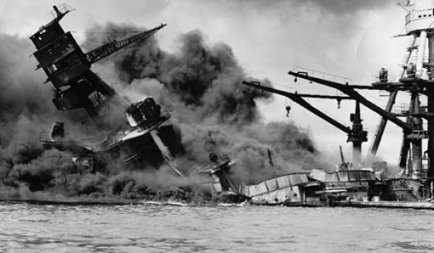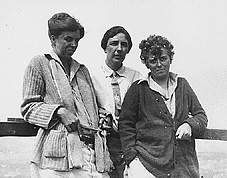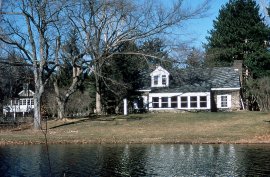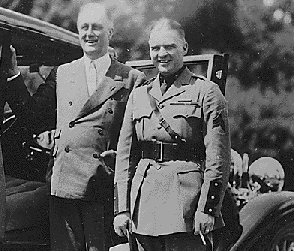Depression Shock
FDR, Jean Edward Smith, 2007
This largely overlooked biography of Franklin Delano Roosevelt (FDR) is a wonderful reminder that a social shock, i.e. the Great Depression, can be used by enlightened leadership to promote the public good at least as effectively as the Chicago School neocons have used shock since the 1960s to promote a concentration of ownership and wealth with general misery for the masses. We needed a reminder in this dark day of the Chicago School neocons run amuck, that positive changes are possible when faced with a major shock but that these changes need constant diligence so the greedy neocons don’t slip us back into the dark days of Hoover and the Great Depression.
The media of FDR’s era was at least as conservative as today with moguls like William Randolph Hearst (Citizen Kane), Henry Luce (Time Life), and Adolph Ochs (New York Times). FDR had an instinctive sense of where the country was and where it need to go. He managed the media brilliantly and led public opinion, taking care never to get too far out front, even into a necessary war, as opposed to pandering to public opinion like modern politicians, who are as likely to exploit and stampede public opinion with wedge issues they themselves have no personal interest in or opinions on. This is not cynicism, it is modern political reality in an age where ethics and decency have been lost in the interests of wealth and power.
FDR was born of the Roosevelt name (Hudson River side) with inherited Delano wealth. His maternal grandfather Warren Delano made two fortunes in the China trade, the second based on opium before the U.S. Civil War where it was used as the primary pain killer. FDR was to make good use of this opium fortune to support his lifelong political career.
Privately schooled until he was 14, largely by his strong willed mother Sara, FDR attended exclusive private school Groton and then Harvard, where he resided in the exclusive Gold Coast, not mixing with poorer students. He attended during the time of William James’ philosophy department (and James deploring the social stratification at Harvard) but FDR was never good at abstract thought and never took philosophy courses. He quipped in 1941, “I took economics courses in college for four years and everything I was taught was wrong.” He is referring to the Adam Smith “invisible hand” of laissez-faire economics taught at Harvard at this time (and to Greenspan at Columbia later) and that led directly to Milton Friedman and the Chicago School of the 1950s. As President, his brain trust introduced FDR to the economics of John Maynard Keynes which formed the underpinnings of his fiscal policies. His proudest achievement at Harvard was to become editor of the Crimson Tide newspaper.
FDR served as undersecretary of the Navy during the Wilson presidency and WWI, giving FDR a unique insight into the workings of government in Washington and of the workings of the military and armaments industry. This experience was invaluable in his subsequent political career and his preparation to act as Commander in Chief during WWII. Unlike Lincoln in the civil war, FDR made hardly a misstep in selecting his military commanders in WWII.
Confirming the TV movie Warm Springs , FDR’s struggle with polio, discovery of Warm Springs Georgia, and meeting for the first time, the poor of America and particularly rural southern America resulted in a dramatic change in his perceptions and empathy with the struggling poor. Without his polio and Warm Springs, it is doubtful FDR would have conceived and implemented the far reaching changes underlying the New Deal.
FDR reentered politics after fighting polio with a run for Governor in New York in 1928. This election, with New York still largely under the control of the Tammany Hall machine in NYC, resulted in a 91% turnout in the city and a turnout in upstate New York exceeding registered voters; a reminder that corruption in voting is not new to the era of mechanized and electronic voting.
The stock market crash of October 1929 and the subsequent Great Depression first gave Governor FDR the opportunity to test some of the programs and reforms in New York that were later central to the programs that became the New Deal. The worsening economic conditions unlike anything ever seen in America and the unwillingness of President Hoover to do anything to correct the situation resulted in a unique opportunity for FDR to take the Democratic nomination for President and to be elected President in 1932.
FDR’s first term as President was to see the most dramatic change in the role of government in American history. As he took office almost all banks were on “holiday” to stop the run on banks as Americans rushed to withdraw their funds, and the stock market was closed. The government promised to print as much money as required to meet the demand, went off the gold standard to allow the dollar to weaken against other currencies, increasing foreign demand for American commodities. Bank deposits were guaranteed by the government. The CCC, PWA, and WPR put millions to work building parks, roads, schools, hospitals, etc. The FCC was created to regulate the airwaves and the SEC was created to regulate Wall Street. States were encouraged to place a moratorium on foreclosures for homes and farms and the Federal government stepped in with massive programs of refinancing and mortgages for homes and farms, saving millions of homeowners and farmers. In 1935, social security was created as a self supporting (employee and employer contribution) security net guaranteeing unemployed and disabled workers income and providing retirement income. Unions expanded their role and representation throughout industry. Wage minimums and work hour limits were set in many states.
During his reelection campaign in 1936, Roosevelt warned the American people of a threatening new tyranny:
Liberty requires opportunity to make a living – a living which gives man not only enough to live by, but something to live for.
For too many of us the political equality we once had won was meaningless in the face of economic inequality. A small group had concentrated into their own hands an almost complete control over other people’s property, other people’s money, other people’s labor – other people’s lives.
These economic royalists complain that we seek to overthrow the institutions of America. What they really complain of is that we seek to take away their power. In vain they seek to hide behind the Flag and the Constitution.
FDR’s second term was marked by a number of missteps which Smith attributes to hubris on the part of the administration. FDR was dissatisfied with some decisions by the Supreme Court and attempted to add new justices to stack the court in his favor – he failed. Chief justice Hughes wrote letter defending the court and laying blame for the unfavorable decisions at the feet of the Attorney General for not paying enough attention to the law in drafting New Deal legislation. FDR cut back federal spending programs, sending the economy back into a severe recession. He reversed courses but not before significant damage was done. FDR attempted to eliminate Democratic congressmen who had opposed New Deal measures in the 1938 mid-term elections and largely failed. The only significant New Deal legislation of FDR’s second term was the Fair Labor Standard Act of 1938, setting minimum wages and maximum hours nationally.
A second major shock following the great depression was unfolding throughout the rest of the world as Germany annexed Austria, Czechoslovakia, and other “German” territories lost in the Treaty of Versailles; Japan annexed Manchuria in 1932 then invaded China in 1937, and Italy joined by acquiring territory in the Balkans. It was these world events that convinced an exhausted FDR to seek a third term in 1940. An isolationist public had not forgotten the cost in American lives of WWI and the Spanish Flu epidemic that followed and while concerned about events in the world, did not want American lives at risk. FDR was able to expand spending on armaments and got legislation allowing him to sell arms to Britain on a cash and carry basis. The Republicans nominated Wendel Willkie who ran on an isolationist platform. When Willkie’s campaign gained traction, FDR weighed in with the promise “I have said before, but I shall say it again and again and again. Your boys are not going to be sent into any foreign war.” To aides he added privately “If we’re attacked, it’s no longer a foreign war.” FDR waged a masterful campaign, slowly bringing public opinion around to the realities of the global conflict. He won in a landslide.
By inauguration day, Britain was running out of money to buy arms and FDR single handedly invented the Lend Lease program by which the allies would be able to “borrow” arms and then, theoretically, return them after the end of the conflict. When Hitler invaded Russia in June 1941, FDR extended to lend lease program to them as well, amazingly with widespread public approval. FDR also succeeded in getting compulsory draft enacted using the effective argument that a draft is the most democratic way to raise an army. Soon 50,000 draftees a month were being added to our services. The draft age was set at 21 so it was American men who fought in WWII unlike the kids of 18 and 19 who fought in Vietnam. All four Roosevelt boys joined the military during the war and all received medals for their service.
In June 1941 FDR imposed an oil embargo on Japan is an ill conceived effort to contain Japanese expansion in Southeast Asia. The embargo made Japan realize that they desperately needed the resources of the Dutch West Indies and Malaya. Japan sent delegates to the US and FDR appointed Cordell Hull to the negotiation. Smith wonders the extent to which racial prejudice distorted the US view of Japan that led to the failure of the negotiation but it clearly failed and Japan, with Yamamoto commanding, attacked Pearl Harbor, the most shocking thing they could have done, as Hawaii was so isolated and heavily armed. FDR got his non-foreign war. FDR’s seeming indifference to the relocation of west coast Japanese underlines the racially weighted way in which Japan was viewed in this era.
Once officially at war, the US threw its tremendous industrial potential into gear and complete recovery from the effects of the great depression were finally complete. A feature of the War Department contracts with armament suppliers allowed for renegotiation allowing the department to recapture government money from excess profits. There were no complaints of profiteering during this war. To stave off a massive demonstration to be staged by black leaders, FDR got legislation guaranteeing that government contracts would not be discriminatory. This is one of the few civil rights acts of the era.
The war further consolidated the New Deal whose social institutions became finally entrenched into the American system. It required two shocks to effect these social changes; the great depression followed by a great war. Without them the stranglehold of the conservatives on the distribution of wealth and concentration of power would not have been broken. The final piece of the New Deal came with passage of the GI Bill in June 1944 entitling veterans generous unemployment insurance, job counseling and enhanced medical care as well as guaranteed low cost loans for buying homes and farms and covering business costs. GI housing changed the face of almost every city in the country. Most importantly, the GI Bill provided federal money for university education. Of 15 million who served in the war, half took advantage of this assistance to attend college and by 1947 half of all college enrollees were veterans. This education created a trained work force that acted like an afterburner kicking the economy into the transformative decade of the 1950s.
FDR with Lucy Mercer 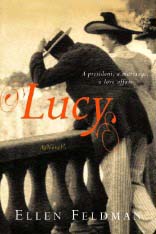 FDR Missy LeHand ER
FDR Missy LeHand ER 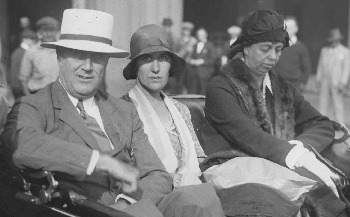
Smith spends some time exploring the strange dynamic of FDR and Eleanor’s (ER) marriage and family life. The personal life of politicians was considered off limits for the media in this era and the public was largely unaware of details of their private lives. FDR fell in love with Lucy Mercer Rutherford and she worked with him as his secretary at the navy in WWI. When FDR announced his intension of leaving Eleanor for Lucy, lifelong political adviser Louis Howe and mother Sara intervened, convincing FDR and ER to stay together for the sake of his political career. Sara even threatened to disinherit Franklin if he divorced. In 1936 King Edward VII of England abdicated his throne to marry twice divorced American Wallis Simpson, and in 1964 it is thought that Nelson Rockefeller’s divorce played a large role in his failure to gain the party’s nomination for president. Although no correspondence has been found, FDR and Lucy stayed in touch for the remainder of Franklin’s life. Lucy married and had a child with Rutherford, but attended each of FDR’s inaugurations and was the only person present when he died in 1945. Missie LeHand became FDR’s personal secretary in 1921 and was to stay with him at Warm Springs during his polio recovery, acting as his nurse and caretaker as well as his secretary. Smith says she was clearly in love with Franklin and accompanied him into the White House where she was said to be the fifth most powerful person in Washington. After a stroke disabled LeHand in 1941, Lucy seems to have reentered the picture on a more regular basis.
Eleanor always supported her husbands political ambitions but was never central to his decision making. On a number of occasions she proved invaluable to him (meeting the veterans camped in Washington in 1933, attending the democratic convention in 1940). Eleanor formed close friendships with women and FDR built her a retreat on the Hudson River at Val-Kill near Hyde Park which he called the “honeymoon suite” where Eleanor, Marion Dickerman and Nancy Cook lived and shared a single bedroom. The women made rustic furniture at the house. Marion and Nancy also retained an apartment in Greenwich Village in the city. FDR called them the three graces. Smith does not speculate on the women’s sexual orientation.
As governor of New York, FDR assigned police sergeant Earl Miller, who was the Navy’s middleweight boxing champion and kept watch over FDR during his 1918 trip to France, as Eleanor’s bodyguard in 1929. Thus began a lifelong friendship between Eleanor and Miller that one biographer of ER compares to that of Queen Victoria and Scotsman John Brown (subject of the movie Mrs. Brown starring Dame Judi Dench). Son James believed the two were more than just friends but again there is no written evidence. The effects of growing up in this “open marriage” and political environment on the five children is hard to say but each of the children had multiple marriages.





